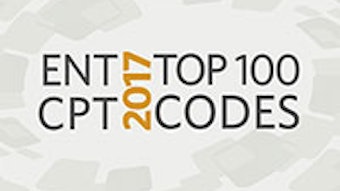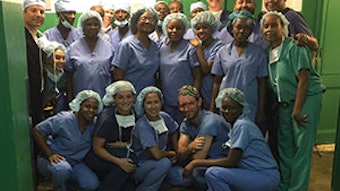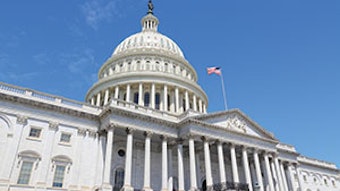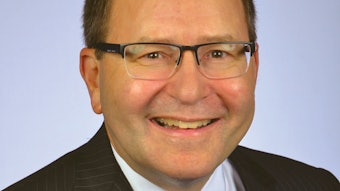Change and Plan B
Things change. Medicine changes. The Affordable Care Act represented change, and now that may change.
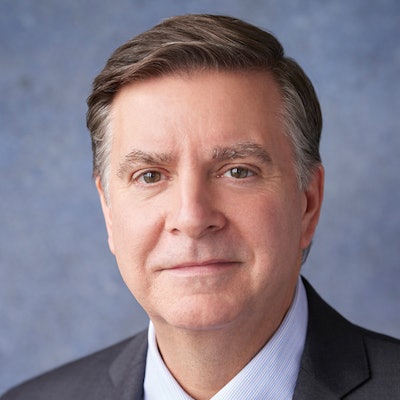 Gregory W. Randolph, MD
Gregory W. Randolph, MD
AAO-HNS/F Past President
—John F. Kennedy
Things change. Medicine changes. The Affordable Care Act represented change, and now that may change.
Change is ever-present and may sometimes require us going to Plan B. Change may represent something you applied for that didn’t pan out or the deeper adversity of illness or accident, the loss of dignity, the sharp sting of prejudice, broken relationships, and sometimes even loss of life itself. In this, we need courage and to have faith and flexibility. The question is not if some of these things will happen to you, because they will; the issue is how you learn to deal with them. When we have unexpected complications in surgery, as we inevitably do, my discussion afterward with the typically downtrodden fellow and resident emphasizes that our commitment here is to learn from this complication and to do better next time—to change.
In all of this, we understand that our initial plan may not succeed, in which case we move to Plan B. Plan B represents a willingness to move with the change, to reshape yourself, and perhaps abandon your previous path to find a better path and a better plan for today.
When change presents itself, flexibility is our greatest ally. When I was a junior Member of our Academy, my very first Academy appointment, made by KJ Lee, MD, past Academy president and current Pacific Rim Regional Advisor, was to the Endocrine Surgery Subcommittee. The subcommittee had grown out of the task force from the overarching Head and Neck Oncology Committee. In the first few minutes of the meeting, the subcommittee chair announced that the work of the task force and subcommittee was completed, and they were now entertaining sunsetting the Endocrine Surgery Subcommittee. This was no more than one or two minutes into my time in the subcommittee appointment! I was not prepared for this change and frankly was panicked thinking that this committee, which I so desired to work on, was dissolving in front of my eyes. Time for Plan B! I stood up, apologized for making a comment being so junior on the subcommittee, and then respectfully articulated all the potential projects that this subcommittee could move forward with if allowed to exist. I described how committed I was to these projects and how important I thought endocrine surgery was to the future of our specialty. There was silence, and then the subcommittee chair, W. Jarrard Goodwin, MD, got up and said, “You know, you make some good points, Greg.” The discussion ensued, the bullet dodged, and Plan B was engaged.
“Be yourself, everyone else is taken.”
—Oscar Wilde
In later years, I chaired the Endocrine Surgery Subcommittee, and through the work of many, including Robert A. Sofferman, MD, David J. Terris, MD, and Ralph P. Tufano, MD, the subcommittee evolved to a full committee, is now a highly desirable committee to be appointed to, and has achieved such a level of functionality that it has been named a Model Committee. Flexibility in going with your own intuitive instincts is part of the adaptation toward acceptance of Plan B. Plan B comes from you.
Change and your Academy
The changes in medical bureaucracy, paperwork, and reimbursement will continue. We must not let this affect the quality of our patient care and our commitment to the profession we so love. Let the Academy help you with these changes.
Reach out to your colleagues through ENTConnect, perhaps the largest existing otolaryngologic-specific communication portal, at http://entconnect.entnet.org/home. Questions on medications, diagnostic and treatment inquiries, billing issues, and more can all be asked of our broader Academy otolaryngology community through ENTConnect.
Manage the future of your practice through the Academy’s CMS-certified quality registry Reg-entsm. Reg-ent now has nearly 1,800 registered participants and represents the largest otolaryngologic registry in the history of our specialty. Data rules, and our Academy, and we as Academy Members, now own our otolaryngology data through Reg-ent!
Change is a constant. Our Academy is prepared to walk with you through this changing landscape. Your Academy and I wish you a happy and healthy (and changing) 2017!
